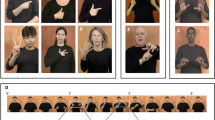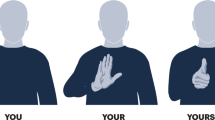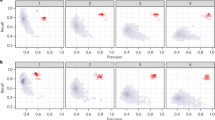Abstract
AMONG the many theories which in course of time have been propounded on the origin of language, that put forward by Sir Richard Paget in his work "Human Speech" (1930) is one which is most probable, and likely, to revolutionize philology. In this Work he asserts that the speaking organs imitated the bodily gestures, especially those of the hands, with which Homo sapiens some 30,000 years ago tried to make himself comprehensible and to understand his neighbours. This theory was put forward first in a treatise on the Polynesian language by Dr. J. Rae in 1862 (reprinted in "Human Speech"). Sir Richard Paget emphasizes that the natural sign-language of those born deaf, and that of the Red Indians, may give useful information as to the stages by which the human language was developed. It is evident that if the gesture theory is right, a valuable aid may be rendered by the study of sign-language all over the world.
This is a preview of subscription content, access via your institution
Access options
Subscribe to this journal
Receive 51 print issues and online access
$199.00 per year
only $3.90 per issue
Buy this article
- Purchase on Springer Link
- Instant access to full article PDF
Prices may be subject to local taxes which are calculated during checkout
Similar content being viewed by others
Author information
Authors and Affiliations
Rights and permissions
About this article
Cite this article
JOHANNESSON, A. Gesture Origin of Indo-European Languages. Nature 153, 171–172 (1944). https://doi.org/10.1038/153171a0
Issue Date:
DOI: https://doi.org/10.1038/153171a0
This article is cited by
-
Origins of Speech
Nature (1950)
-
Origin of Indo-European Languages
Nature (1944)
Comments
By submitting a comment you agree to abide by our Terms and Community Guidelines. If you find something abusive or that does not comply with our terms or guidelines please flag it as inappropriate.



